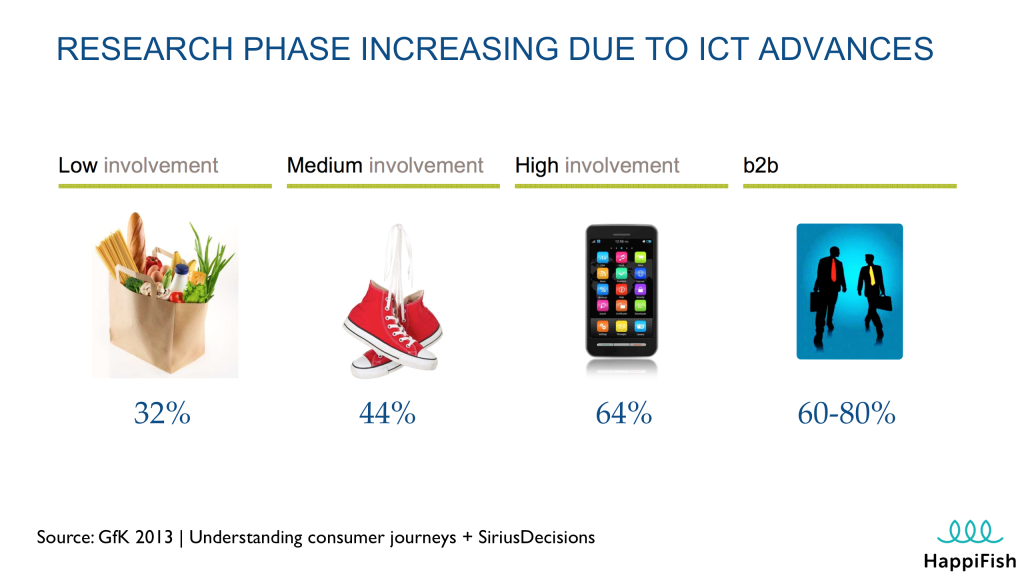 This post was originally written by Tom De Baere on his blog, B2B Marketing Experiences.
This post was originally written by Tom De Baere on his blog, B2B Marketing Experiences.
The digital evolution has changed how organizations conduct business. There’s a lot of change happening: customers now have new ways of communicating using social media, forums and product reviews. They gather real-time information on products and services, and engage with brands in real-time, using mobile phones and more.
The rise of real-time messaging applications like Snapchat, Vine, Instagram and others signal a new era where customers increasingly expect personal experiences and instant real-time interactions. Instant shipping of products in ever shorter times provide instant gratification to buyers that live in the moment of today.
More access to information also means buyers increasingly research products, even for low involvement products like FMCG, fashion, computer software, multimedia products or home decoration. More and more of the buying process is happening online, where buyers today need to be served more and more by the content that marketers provide them.
The abundance of online content and channels is shifting the power from the seller to the buyer. Today buyers are more informed then ever, in which they don’t need salespeople anymore to help them buy. Or, salespeople get invited to conversations much later these days because of online content, in which they are confronted with very educated customers.
What is the impact of all of these changes on the role of salespeople within the buying process?

Is the job of sales really disappearing, or just changing?
The answer is more complex, and as usual, it depends…
In some markets like SaaS (software-as-a-service) providers, e-commerce websites, software vendors, this seems obvious. More and more of the relationship that customers have with brands will happen without them ever talking to a human being.
Gartner predicts that 85% of this relationship will be conducted like this, and this will happen as soon as 2020.
 The question is what will happen in other industries? In some industries you might expect the continued need for salespeople. Just a few years ago, questioning the need for salespeople inside any expensive consumer product or at most B2B companies would be absurd. “Of course you need salespeople”, would the obvious reaction be. Who would otherwise educate buyers about that expensive CRM or ERP system?
The question is what will happen in other industries? In some industries you might expect the continued need for salespeople. Just a few years ago, questioning the need for salespeople inside any expensive consumer product or at most B2B companies would be absurd. “Of course you need salespeople”, would the obvious reaction be. Who would otherwise educate buyers about that expensive CRM or ERP system?
But even high value products are not immune for the changes that digital is bringing. Expensive cars like car manufacturer Tesla motors is selling their +80.000EUR cars completely online, and Volvo and BMW are planning the same. Enterprise software is usually very complex and seems impossible to sell without salespeople. But in the case of Atlasssian, an Australian enterprise software company, no sales people are required.
Click here to read the full post.

Principal
Engaging your customers is at the heart of successful marketing programs. For more than 20 years, Cheryl has been building and executing content and thought leadership strategies designed to do just that. She is excited to be applying that well-honed skill to a help companies like Microsoft, Cisco, 3M, Intel, Capital One and Barclaycard tap into their stakeholder communities and build sophisticated content strategies.
Her experience base spans a range of industries – from technology and financial services to retail, travel, consumer products and healthcare. Cheryl has served as an integral member of her clients’ marketing teams, providing counsel on marketing and brand strategy, thought leadership, media relations, product introductions, and event management.
Prior to joining ComBlu, Cheryl spent 10 years leading corporate marketing for large, complex organizations.
